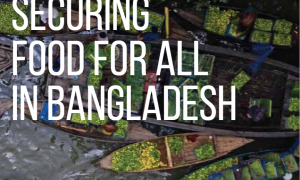The political economy of bundling socio-technical innovations to transform agri-food systems
Agri-food systems transformation requires accelerated innovations to address multiple economic, environmental and health objectives. No innovation serves everyone’s interests. Political opposition to innovations is therefore inevitable.

